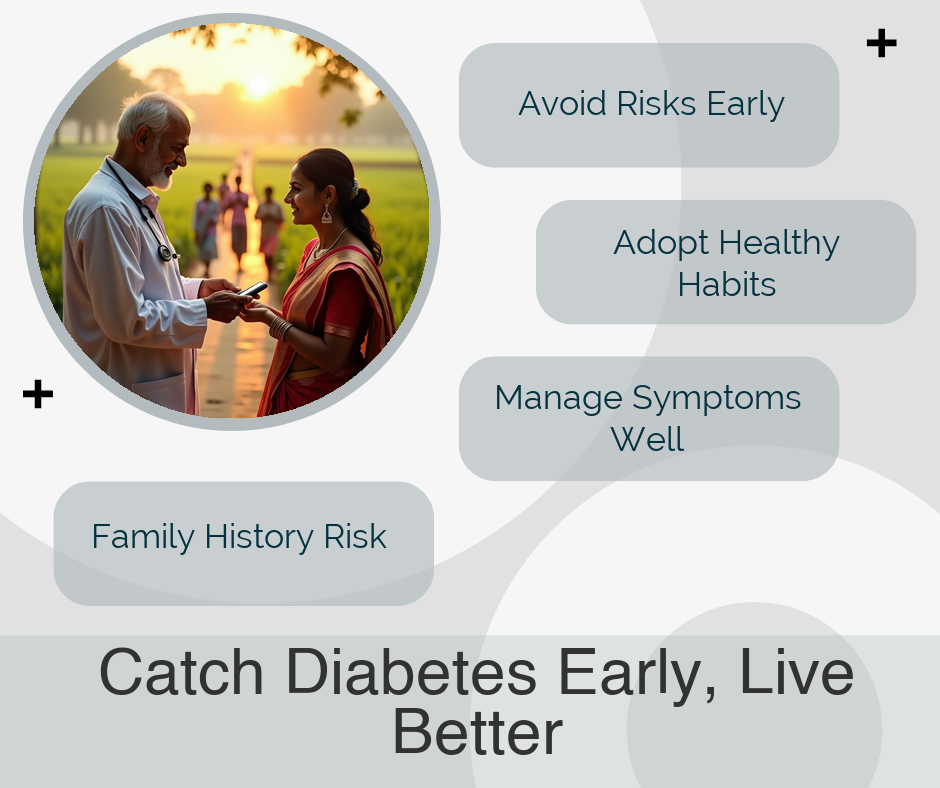Screening tests for diabetes are crucial. They let you know if you’re at risk or already have the condition. Timely blood test for diabetes screening is like a wake-up call. The information helps prevent complications such as heart problems and nerve damage. Plus, regular screenings relieve the anxiety of not knowing your health status.
Investing time in understanding these tests can be life-altering. You can catch diabetes early with routine check-ups, allowing you to take control of your health. With the right knowledge, people can live happier and healthier lives.
Understanding Diabetes Screening Tests
There are several tests available to check for diabetes. Here are some common types of diabetes screening tests:
- Fasting Blood Sugar (FBS): This involves a simple blood draw after fasting overnight. It shows if your sugar levels are on the higher side.
- Oral Glucose Tolerance Test (OGTT): You drink a sugary liquid, then your blood sugar is tested at intervals to see how your body copes with sugar.
- HbA1c Testing: This gives an overview of your average blood sugar over two to three months.
Each of these tests provides valuable data. Choosing the best screening tests for diabetes depends on your risk factors and doctor’s advice. These tests can also serve as a screening test for prediabetes, an early warning stage before full-blown diabetes sets in.
Understanding these tests removes the fear of the unknown. They aren’t complicated. Instead, they serve as a tool to empower people with knowledge about their health.
The Importance of Early Detection
Detecting diabetes early can change everything. It’s about catching it before things get worse. That’s why diabetes screening recommendations emphasize early testing.
- Prevent Complications: By knowing early, you can take actions to prevent issues like kidney problems or eye damage.
- Healthy Lifestyle Changes: You’ll learn which habits to change, like eating better or exercising regularly.
- Manage Symptoms: Early detection allows for better symptom management. This can include medication and regular checkups.
Routine screening test for diabetes mellitus plays a crucial part. Such tests are tailored to your needs and lifestyle. People with a family history should pay particular attention as they are more likely to develop the condition.
Ultimately, knowing you have diabetes provides motivation to live better. It’s about stepping ahead rather than waiting for symptoms to occur.
Identifying Risk Factors for Diabetes
Understanding risk factors is half the battle in preventing diabetes. Here are some areas of focus:
- Genetic and Family Influences: If your parents or siblings have diabetes, you might have it too.
- Lifestyle Choices: Obesity and lack of exercise increase your risk. Eating unhealthy food adds to this.
- Demographic Considerations: Age and ethnicity play roles. Older adults and certain ethnic groups are more prone.
Awareness of these factors leads to proactive measures, such as opting for latest diabetes screening methods. Knowing your risk brings you closer to making informed choices. Often, it’s minor tweaks in daily routine that make all the difference.
Debunking Diabetes Myths
There are many myths about diabetes screening. Let’s look at a few:
- Myth: Only Overweight People Get Diabetes: Not true. While weight contributes, thin people can develop diabetes too.
- Myth: Diabetes Screenings Are Unnecessary: Regular screenings can be lifesaving. They help catch diabetes early, avoiding serious complications.
- Myth: All Screenings Are Invasive or Painful: Many tests are simple and quick. They involve minimal discomfort compared to the benefits.
It’s easy to fall into the trap of believing myths. Understanding the truths about screening tests for diabetes empowers individuals. It reassures them about the necessity and simplicity of testing.
A Call to Action: Screening Guidelines and Benefits
Being proactive about health means understanding when to test for diabetes. So, when should you get a diabetes screening? Here are some guidelines:
- Above Age 45: Anyone over 45 should have a screening regularly.
- Overweight and Under 45: If you’re overweight and have other risk factors, screenings are advised.
- Routine Check-Ups: During annual health exams, ask your doctor about screening for diabetes.
The diabetes screening guidelines help set a clear path. Knowing these makes it straightforward to arrange necessary tests.
Additionally, people can use diabetes screening kits for at-home evaluations. These kits provide preliminary results. However, they aren’t a substitute for professional medical testing.
Clear understanding of diabetes screening recommendations allows individuals to manage health proactively. Early screenings provide a foundation for a better, healthier lifestyle. By acting swiftly, people safeguard their future well-being.
Regular screening test for diabetes brings numerous benefits:
- Informed Health Decisions: Know your status and make lifestyle changes.
- Peace of Mind: Frequent updates on your health remove anxiety.
Understanding diabetes tests and acting early streamlines future management efforts. It’s not about fear; it’s about preparedness. With simple screenings and clear guidelines, everyone can take a step towards healthier living.

